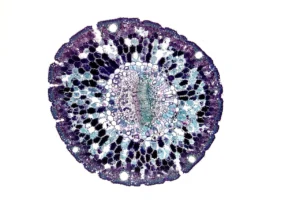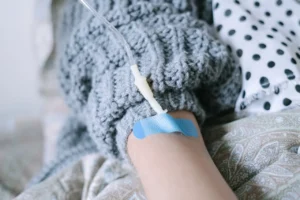
AbbVie (NYSE: ABBV) has announced encouraging findings from its Phase 3 trial, SELECT-GCA, showcasing positive top-line results. The trial, conducted across multiple centers, employed a randomized, double-blind, placebo-controlled design. It investigated the efficacy of upadacitinib (marketed as RINVOQ®) in combination with a 26-week steroid taper regimen among adults diagnosed with giant cell arteritis (GCA). The primary endpoint of sustained remission from week 12 through week 52 was achieved by upadacitinib (15 mg, once daily) combined with the specified steroid taper regimen, with 46 percent of patients attaining sustained remission compared to 29 percent of patients in the placebo group receiving a 52-week steroid taper regimen (p=0.0019).
Dr. Kori Wallace, AbbVie’s Vice President and Global Head of Immunology Clinical Development, emphasized the significance of these results in addressing the challenges faced by GCA patients, underscoring AbbVie’s dedication to advancing treatment options for immune-mediated diseases.
GCA is an autoimmune disorder characterized by inflammation of the temporal and other cranial arteries, as well as large and medium arteries such as the aorta. It predominantly affects elderly individuals over 50, particularly those between 70 and 80 years old, with women at higher risk. Symptoms may include headache, jaw pain, and vision changes or loss, including sudden and permanent vision loss.
Secondary endpoints were also met, with a notable proportion of patients achieving sustained complete remission and experiencing fewer disease flares in the upadacitinib group compared to the placebo group. However, the lower dosage of upadacitinib (7.5 mg) did not meet primary or secondary endpoints.
Dr. Daniel Blockmans, lead investigator of the SELECT-GCA trial, expressed optimism about these results, highlighting the potential of upadacitinib as a groundbreaking oral treatment option for GCA, a disease primarily affecting older individuals and currently lacking diverse treatment options beyond steroids.
The safety profile of upadacitinib 15 mg during the 52-week placebo-controlled period aligned with observations from approved indications. Adverse events were generally consistent with those previously documented, with no new safety concerns identified. Notably, serious adverse events, including infections and cardiovascular events, occurred at similar rates between the upadacitinib and placebo groups.
Further details, including results from all treatment groups, will be presented at future medical meetings. It’s important to note that upadacitinib’s use in GCA is not yet approved, and its safety and efficacy require evaluation by regulatory authorities.
SELECT-GCA (M16-852) enrolled 428 GCA patients in a Phase 3, multicenter, randomized, double-blind, placebo-controlled study. The trial consisted of two periods, the first of which evaluated upadacitinib’s efficacy in combination with a 26-week corticosteroid taper regimen compared to placebo with a 52-week taper regimen. The second period will assess the safety and efficacy of continuing versus withdrawing upadacitinib in maintaining remission among participants who achieved sustained remission in the initial phase.
Giant cell arteritis (GCA), also known as temporal arteritis, is a prevalent autoimmune disease affecting medium and large arteries, particularly the temporal and cranial arteries, as well as the aorta. GCA symptoms include headache, jaw pain, and vision changes or loss, with sudden and permanent vision loss being a severe complication.
Upadacitinib (RINVOQ®) is a JAK inhibitor under investigation for various immune-mediated inflammatory diseases. It exhibits greater inhibitory potency for JAK-1 versus other JAK enzymes in cellular and enzymatic assays. Upadacitinib is being evaluated in Phase 3 trials for several conditions, including alopecia areata, hidradenitis suppurativa, systemic lupus erythematosus, and vitiligo.
AbbVie provides RINVOQ as a treatment option for moderate to severe rheumatoid arthritis (RA), psoriatic arthritis (PsA), ankylosing spondylitis (AS), non-radiographic axial spondyloarthritis (nr-axSpA), ulcerative colitis (UC), and Crohn’s disease (CD). It is also indicated for moderate to severe atopic dermatitis (eczema) in adults and adolescents aged 12 and older who haven’t responded adequately to prior treatments.
Important safety information for RINVOQ includes warnings about serious infections, increased risk of death in individuals over 50 with cardiovascular risk factors, cancer risk, blood clotting, allergic reactions, gastrointestinal tears, and changes in certain laboratory tests. Before starting RINVOQ, patients should inform their healthcare provider about their medical history, current medications, and any potential risk factors. RINVOQ should not be taken during an active infection, and caution is advised in patients with a history of heart disease or cancer.
Patients should promptly report any symptoms of infection, heart attack, stroke, blood clotting, or allergic reactions while taking RINVOQ. Additionally, routine monitoring of laboratory tests may be necessary during treatment. Avoiding grapefruit and discussing vaccination with healthcare providers are also recommended precautions during RINVOQ therapy.
These findings underscore AbbVie’s commitment to advancing care for patients with rheumatic diseases through innovative therapies and ongoing research efforts. For more than two decades, AbbVie has dedicated itself to discovering and delivering transformative treatments that address the unmet needs of patients across various therapeutic areas.
For more information about AbbVie and its portfolio of therapies, visit www.abbvie.com and follow @abbvie on social media platforms.




